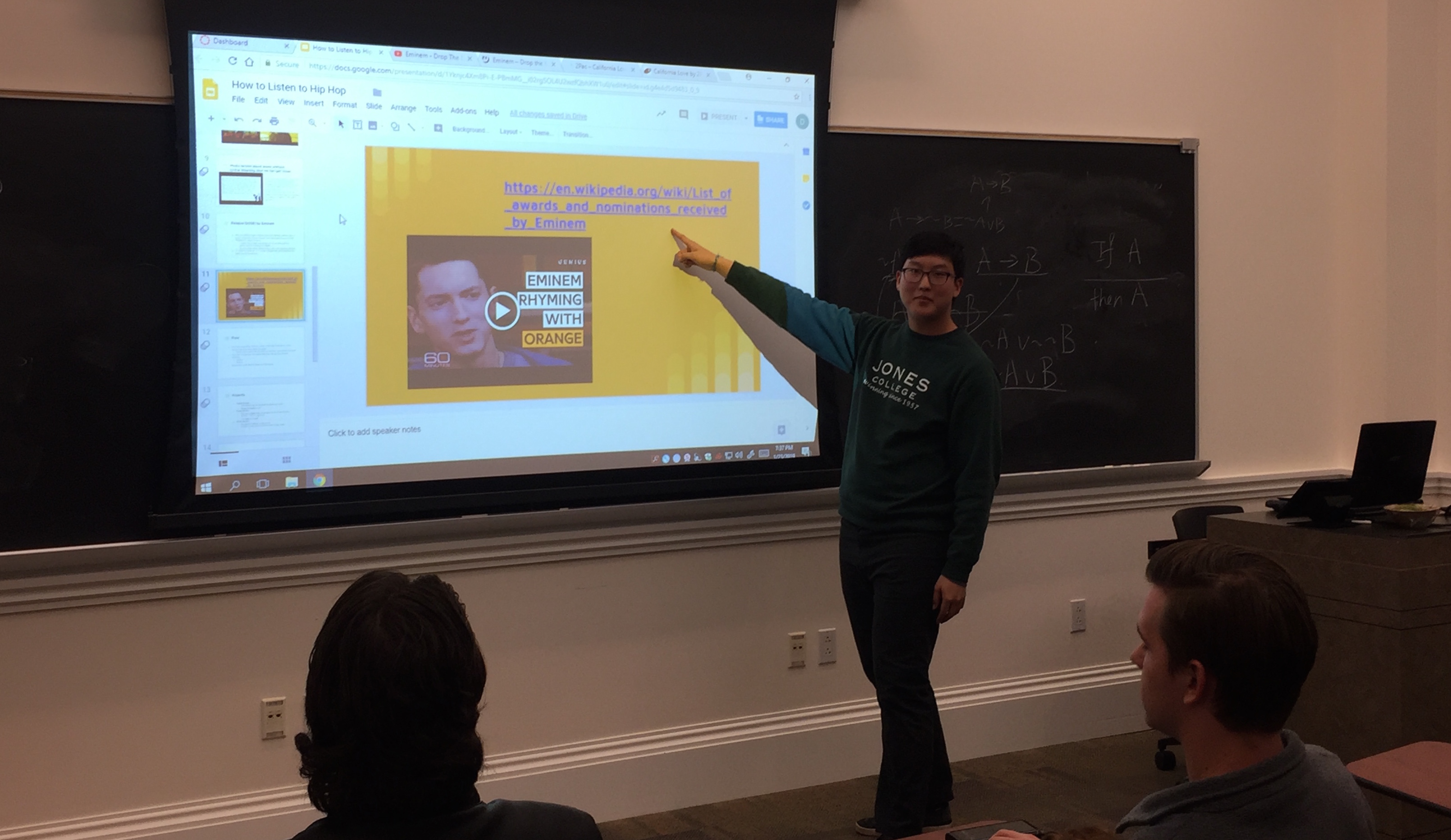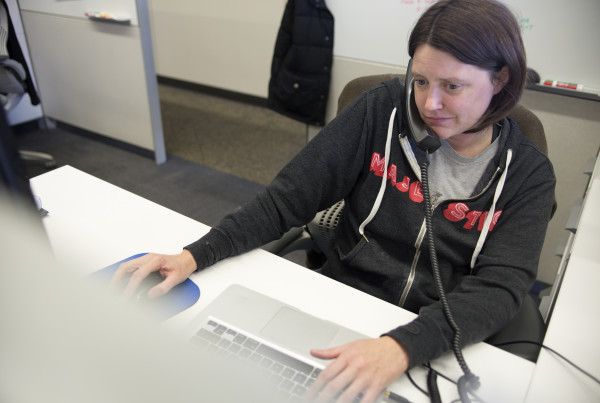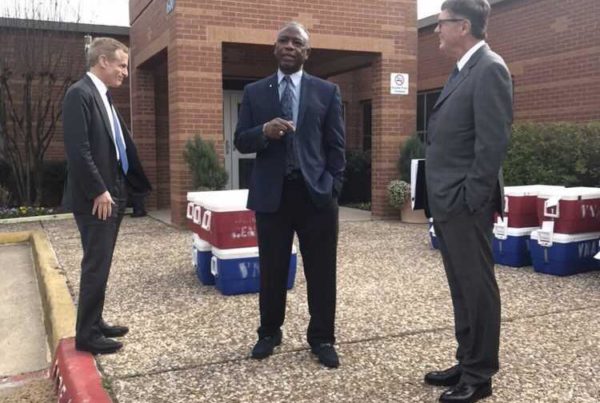Daniel Koh, a Rice University junior, teaches a class there called “The History of Hip Hop.”
The university has a process for students who are interested in teaching their own classes; Koh learned about it during his freshman year from a fellow student who taught a class about the television show “Survivor.”
“[The university] let me know about the process to teach my own, which was very simple and very intuitive – that’s how it all began,” Koh says.
He chose hip-hop because it was something he developed a passion for once he came to Rice.
“I wanted to create a class where even if you didn’t know a lot about the genre, that you would be able to get a lot of benefit from the course, and be able to meet a lot of really cool people and discuss music together,” Koh says.
He says the first semester he taught the class, it had more of a lecture format. But since then, it’s evolved into more of a discussion session.
“Honestly, it was pretty dry,” Koh says. “Now, it’s much more just group music appreciation. It’s a lot of group discussions and a lot of interactive activities.”
One topic the class has looked at was profanity in hip-hop music, and whether hip-hop artists are responsible for the messages that people internalize from their music.
Koh also tasked his students with trying to define hip-hop music.
“We played a game that was called ‘Hip-Hop or Not?’ and I chose a wide selection of videos and audio pieces, and I had the class decide for themselves whether or not it was hip-hop,” Koh says.
He says he played Katy Perry’s “Dark Horse” video, then played a remix of that song featuring noise from a rubber chicken.
“That was something that I’d never expected to ever watch in an academic setting, but it was really exciting watching my students think critically about the rubber chicken and decide for themselves whether or not it matched their definitions of hip-hop,” Koh says.
He says the impetus for the class came from his desire to share his love of hip-hop with other students, and to connect with students he may not interact with otherwise. It also helped shape his career path.
“It became something greater, and it became a desire to teach as a career,” Koh says.
Written by Caroline Covington.
















